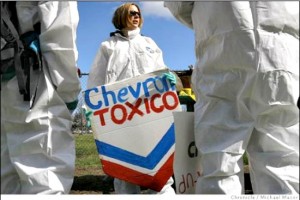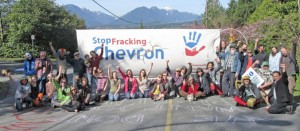REMOVAL OF MORNING MIX FROM DRIVE TIME PROGRAMMING
The recent removal of the Morning Mix radio program from the 8:00 AM time slot on KPFA has raised some concern at the San Francisco chapter of the National Lawyers Guild (“Guild”). We write this letter because KPFA and its free speech mission, are important to the Guild and to many activists that either work with, or are represented by, Guild members.
The Guild views KPFA not as simply another movement organization, but as a key part of the information commons. In that sense, KPFA is similar to a public utility — it is for the public benefit. KPFA policies on openness and actions regarding access to its airwaves affect all of us striving for a better world.
Like KPFA and Pacifica, the Guild was created with a particular mission: it was founded in 1937 as an alternative to the American Bar Association’s exclusionary practices and political orientation, and the Guild was the first integrated bar association. KPFA was launched in 1949, three years after pacifist Lew Hill created Pacifica. The aim of the station has always been to promote cultural diversity, to promote pluralistic cultural expression, to contribute to a lasting understanding among diverse constituents, to maintain freedom of the press, and to create a forum for various viewpoints.
At KPFA’s core is the concept of pacifism or non-violence. Non-violence is often mistaken for being simply the absence of, or opposite of, violence. Instead nonviolence is a systematic framework of both conceptual principles and pragmatic strategies to reduce harm and promote positive peace at the personal, community, national and global levels. Contrary to popular belief, non-violence requires boldness and courage. Moreover, it is easy to fall astray from the path of non-violence in the pursuit of financial stability or in response to political pressure.
With this framework and history in mind, we raise our concerns about an uncomfortable pattern of events that have transpired at KPFA that appear to be the antithesis of non-violence. We do not list these concerns to cast blame, or to impose our set of values on another organization. We list these concerns because our collective silence could be perceived as approval or consent. We consider individuals and organizations on both sides of this debate as both friends and allies. It is in the spirit of a friend and ally that we speak about the recent decisions at KPFA, and seek to build trust through transparency.
The Morning Mix was unique within the KPFA lineup because it was hosted by a diverse group of community volunteers with programming important to community members. The Morning Mix often reported on local political movements that were under-reported elsewhere. One such issue is tar sand extraction and transportation by rail to refineries. Andres Soto, one of the hosts of the Morning Mix, and a Richmond resident and activist, often reported on this issue. He frequently reported on Chevron’s efforts to refine tar sands in Richmond which will have a direct impact on the people of Richmond and surrounding communities. Across the nation, we see a growing movement on this issue, and the Guild has recently received reports of brutal arrests of people who oppose tar sands. Instead of supporting this excellent reporting done by Andres Soto on this issue, KPFA has essentially silenced him by eliminating the prime time Morning Mix program. It is doubtful that the new paid host from LA will report on local efforts to oppose refining tar sands in the same way.
We could go through other hosts and programs on the Morning Mix, and discuss how each is connected to a local community and movement, however the point is that KPFA’s actions have actually decreased the diversity of speech on its airwaves.
As a community-based radio station dedicated to pluralistic expression, it would seem that KPFA would wish to avoid even the appearance of decreasing diversity, or of favoritism, or of bias. Gentrification of a neighborhood transforms it by displacing local residents, which in turn erases local character. Defenders of gentrification support the transformation, claiming that it increases public safety. Some at KPFA have described the removal of the Morning Mix as a ” move towards professionalism”. However we fear that “professionalism”, like “public safety” is pretext. The unqie character of the Morning Mix came from its local voices, accents, topics and perspectives. KPFA erased this local character with a single paid host out of LA.
Another reason put forth by by KPFA management is that the LA program will allegedly bring in more revenue. Although people can and do argue about interpretation of financial figures, the financial documents produced at the KPFA Local Station Board show that the Morning Mix was pulling is weight during fund drive. Thus, KPFA’s reliance on a specific interpretation of its financial figures, when there are other valid interpretations, is a factor that creates the appearance of viewpoint bias. For example, the KPFA financial documents do not take into account the expenses incrred by having paid hosts. Thus, the financials purport to measure programs in terms of revenue generated, and disregard specific costs incurred by having paid hosts.
Moreover, and this point cannot be emphasized too much, KPFA can not and must not base all of its programming decisions on finance alone.
Although this letter was prompted by the removal of the Morning Mix, in the course of drafting this letter, we have learned of complaints that KPFA management has silenced specifically black programmers and/or failed to provide support for critical black programming or programming on critical local issues relevant to black communities. We are concerned that the removal of the Morning Mix, a show frequently hosted by black local hosts, is part of this pattern. We understand that KPFA is filling the Morning Mix time slot with a show hosted by a person of color, however the show is not produced locally, and does not have as close a connection to Bay Area black communities, and that features voices of black programmers, and not assume that programming by or for people of color generally will necessarily cover these issues.
KPFA, as part of its mission, must be ever vigilant of protecting diversity of viewpoints. Removal of the Morning Mix has narrowed the range of speech on its airwaves.
KPFA appears to promote radio programs that would prefer to talk about global economics, rather than race and the local displacement of black and immigrant families. It is an agenda that appears it would rather talk about gender discrimination in the boardroom, but not talk about the impact of gender, race and poverty on the young girls caught up in sex trafficking on Bay Area streets. It is an agenda that appears it would rather solve problems abroad, rather than those at home.
The Guild is an organization dedicated to human rights over property rights, and our collective conscious is touched when KPFA – a radio station dedicated to promoting diversity – consciously or unconsciously engages in viewpoint suppression. The allegations may be uncomfortable, however we in the Guild believe that it is through transparency and discussion of diverse viewpoints that this situation can be resolved.
In solidarity,
Sharon Adams, Vice President
National Lawyers Guild, Bay Area Chapter
August 12, 2014



